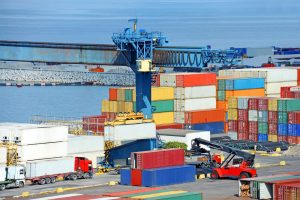14 Aug What does Ex Works Terms and how it runs?
If you ship goods overseas on a regular basis, it is likely that you have heard the term Ex Works before.
 This term (or incoterm as known in the logistics world) is one of several commonly used trading conditions, which should be incorporated into a contract between the seller and purchaser of goods. It is important because it assigns responsibilities to both parties with regards to the transportation of the goods in question, when you cooperation a factory in China with this term, first you need a China shipping agent handling the shipping for you. Shipping from china will be more simple and convenient.
This term (or incoterm as known in the logistics world) is one of several commonly used trading conditions, which should be incorporated into a contract between the seller and purchaser of goods. It is important because it assigns responsibilities to both parties with regards to the transportation of the goods in question, when you cooperation a factory in China with this term, first you need a China shipping agent handling the shipping for you. Shipping from china will be more simple and convenient.
Ex Works (sometimes abbreviated to EXW) places very little responsibility on the seller. The requirement of the seller is to make the goods available and have them suitably packed at a specified location, which is usually the seller’s warehouse or premises. The seller doesn’t even have to load the goods onto the vehicle, although in most cases the seller will perform this act. It should be noted that the seller is not obliged to do this and if they do load the goods onto a vehicle, this is at the buyer’s risk.
Ex Works places maximum responsibility on the buyer. The buyer will need to account for costs associated with the loading of the goods onto a pickup vehicle, obtaining any export licence or permits, any insurance premiums, transferring the cargo overseas via air, sea, road or rail, unloading the goods at the destination and handling all customs procedures at origin and destination. If any storage charges, customs examination fees, customs duties or any other charges fall due, this will be the responsibility of the buyer.
If you have any further queries in respect of the Ex Works incoterm, feel free to talk to contact a member of our team.





Sorry, the comment form is closed at this time.